- Home
- Lynne Reid Banks
The Warning Bell Page 14
The Warning Bell Read online
Page 14
And since then, Matt had been the nucleus of the only bright area in the sombre old funeral-shadowed house. All the vulture-relatives, even the dreariest and vinegariest, softened a degree or two at the sight of his bright red hair and pearly-toothed grin. Even dreaded Auntie Flora from Fife was spotted giving him a sweetie when she thought no one was looking. Only Ian held out.
Over and over again, Helen said, ‘If ever you want someone to leave him with, just you ask Aunt Helen. Great-aunt Helen! I’ll be only too pleased. Only too delighted!’
And even in her state of shock and mourning, this roused Maggie’s mother at last to remark tartly to Maggie, ‘He’s got a grandmother, you know. I should hope I’ll get first refusal.’
But Maggie said, ‘Of course, Mummy, but I don’t see why I should ever need anyone to look after him. After all…’ To herself only, she continued, ‘I’ll be stuck out there for years yet.’
My loneliness has all been for nothing… A week after the funeral, Maggie carried those words, poker-worked into her memory, back to Africa with her. She knew she would keep thinking about them, long after she had stopped thinking about her father, or Ian, or anything either of them had said deliberately to wound her. She could not escape from the bed she had made. It now seemed to be mainly for her mother’s sake that she must make it possible to lie in it less defeatedly.
CHAPTER THIRTEEN
The first effective thing she did on her return to Port Harcourt was to get in touch with Joan Hillman. Some residual pockets of Scottish air in her lungs not only impelled her to do this, but gave her such impetus that instead of tamely telephoning Joan at home, she bearded her in her professional lair, at the school.
It was a long, low building, architecturally related to all the other buildings erected by the oil company for the use of their employees. It accommodated some hundred children aged from five to eleven, about two-thirds of them white. The classes were small, the discipline firm, the headmistress English and the curriculum likewise, with strong emphasis on the three ‘r’s, plus geography and history. British history, of course. Once, early on, Joan had tried to introduce a bit of Nigerian history. The head, Mrs Hatchard, ‘had her in’ with a vengeance. ‘Surely their own culture and history have some relevance?’ Joan had asked. Mrs Hatchard’s reply might have stood for the credo of the school. ‘We are not here, Mrs Hillman, to break our heads or theirs with concepts of relevance. We are here to follow the English syllabus. The future of this country is in our hands. That is all the “relevance” we need take into account.’
The school was well-shuttered and fanned though still unbearably hot. But there was a pleasing air of orderly calm as Maggie walked about, peering through the glass panels in the doors in search of Joan. Black heads and white were bent intently over conventional desks while teachers stood before sturdy, well-chalked blackboards. Apart from the heat, and the chiaroscuro element, it all smacked of Maggie’s own schooldays. This was reassuring.
She found Joan dictatorially dictating to some fifteen ten-year-olds. When she caught sight of Maggie through the panel, she stopped short and goggled comically. She came at once to the door and shut it behind her.
‘My dear! Welcome back! What brings you to our little indoctrination centre? Nothing wrong, I hope?’
‘Well, you did say I ought to come and give you a hand.’
‘Did I not!’ She looked at Maggie more closely. ‘Has something happened? In Scotland? What’s given you that sudden do-or-die expression?’
‘Nothing! I just felt I had to make a move quickly, before I —’
‘Before old daybed renewed its clutch,’ supplied Joan briskly. ‘Quite! Very wise. All right, in you come, and let’s put you through your paces.’
And without more ado, she held open the door.
Maggie could see five black and ten white faces gazing at her expectantly. Her audience! She quailed. But it was too late, as she had wanted it to be — for this inevitability, she had made herself come without warning or preparation.
‘Stand up, class!’ boomed Joan. ‘We have a visitor.’
Maggie took a deep breath and walked in. Her heart pounded, her mouth was dry and her palms itched. She recognised the sensation instantly. It was stage-fright. But it was all right. She knew her lines.
‘Good morning!’ she said sunnily. ‘My name’s Mrs Macrae. I’m going to tell you all about acting.’
It was arranged that Maggie should come to the school as an auxiliary drama teacher three mornings a week. Unaccountably, the formidable Mrs Hatchard took a fancy to her.
‘Normally all our teachers are graduates,’ she said. ‘But then, you are a graduate, in your field, aren’t you, my dear? You’ll have no trouble, I’m sure. Just keep them busy. We don’t expect a production of Hamlet at term’s end, you know! Lots of pretend games, acting out little songs and stories from their reading books, that sort of thing. You’ll find the Africans a trifle slower to memorise than ours, I dare say, but you can make allowances…’
‘Patronising silly old trout!’ Joan rumbled later.
Maggie found the whole enterprise fascinating. Drama and acting were very much to the children’s taste and they threw themselves joyfully into everything she gave them to do. After a term of getting to know them, she decided to push beyond the ‘pretend games’ and try something more challenging.
She searched through books of playlets she found in what passed for the school library, but they were all as dated and bloodless as the Girls’ Own Annual 1933, which also had its place there. There were, of course, no blacks in the casts, which were anyway far too small. She needed plays with a bit of meat in them, a bit of — well… ‘Relevance!’ cried Joan. One evening, Maggie sat down in her kitchen and wrote a play of her own.
‘What Madam write?’ Tolly could not read and showed no signs of wanting to learn, but the whole business of writing intrigued her.
‘It’s a play, Tolly, a story, all told in talking. About the Prince of Kula.’
Tolly’s eyes grew wide.
‘Kula Prince like I know?’
‘Yes, of course. It’s your story, that you tell Matty.’
She was basing her play on an old Ibo legend about a tribal prince and princess and their star-crossed love, which comes in its tragic and grisly climax when the princess’s father eats the prince. It happened to be three-year-old Matt’s favourite story. Bruce, overhearing it in Tolly’s version, had been appalled.
‘Cannibalism — honestly, Maggie, should you not apply a bit of maternal censorship? He might think the blacks will eat him!’
‘He loves that part best. Tolly gobbles him up.’
It was Joan who had thought of looking the legend up in a book of Nigerian folklore, and, finding it ‘authentic’ (another of her favourite words) had slyly suggested they use it for the play. Maggie was dubious, as well she might have been.
‘What will Mrs Hatchard say?’
‘Who cares?’
‘Don’t we?’
‘Not I! I’m fed up, anyway. I’m thinking of leaving the company school and starting up a little dame-school, the dame being me.’
‘Who’d go?’
‘Thanks a lot!’
‘No, seriously. Look before you leap. Who’s left? Or would you poach pupils from Mrs Hatchard?’
‘I’m not committing myself at this stage. I’m confident I’d find some piccens to teach, black, white or khaki.’
‘Could I join you, if I get the sack?’
‘Need you ask? Come on, girl, where’s your gumption? Give the kids something to get their teeth into! It gives me a pain, watching them being moulded into little artificial Englishmen.’
The eleven-year-olds from the top class fell in love with the play at first reading. Black and white alike hurled themselves into it, almost fighting for the leading parts. After consultation with the children, Maggie cast the black ones as the Kulas who came to avenge their prince, while the whites were the cannibal King Onyo, his
daughter and their retinue. They were to have their skins doctored with a mixture of cold-cream and cocoa.
‘You ought to let the king at least keep his white face,’ said Joan sardonically. ‘Taking bites out of black princes is highly symbolic of the way we exploit them.’
Mrs Hatchard was delighted to hear that there would be — if not Hamlet — at least a play of sorts to set before the parents at the end of term. She was always seeking to enhance the school’s prestige. In fact, she was so busy rehearsing her choir and drilling squads of juvenile athletes to augment the entertainment that she had no time to vet the play until the dress rehearsal.
‘Now we’re for it,’ whispered Joan on that chaotic occasion. Her leathery face was creased into a schoolboy grin, and the ‘fag’ that she permitted herself extra-curricularly jiggled on her nether lip in response to a silent interior chuckle.
Maggie was in no such jocund mood. She was scared. It was all very well for Joan… Mrs Hatchard doubled as the wife of Bruce’s superior in the company.
But providence, in the shape of a timely telephone call, took a hand. The Head’s possible wrath was postponed, and the show went on.
And what a show! Of course, Joan shared the honours. The sets and props, costumes and music that embellished the production and clearly inspired the child actors were the results of her ineluctable bombastic pressure upon the arts and crafts department and her own servants, from whom all but basic household chores had been withdrawn to enable them to hammer, paint and sew to the experts’ instructions.
But the play itself, and the production, were really Maggie’s. Her special talent for the theatre had brought it to birth. The throne in its straw-walled ‘palace’, the dug-outs on the ‘riverbank’, the splendid befeathered robes, replicas of tribal body ornaments and the throbbing and bleating of the school orchestra playing their native instruments for once, were the embellishments. The main meal was of Maggie’s providing, and as the electric waves of excitement generated by the play swept the audience, the main triumph was Maggie’s.
It was not unmingled with terror.
Through a peephole in the jungle-painted wing, she watched Mrs Hatchard’s face. Amid her audience of company-official parents, she very quickly came to the realisation that they were being shown an uncensored rendition of a full-blooded Ibo legend. When the princess rushed into the throne room, found her mutilated prince at the foot of the steps and cried, ‘As I feared! My Father has eaten his flesh!’ a thrill (whether of horror or delight) ran visibly across the audience, and Mrs Hatchard, pale as a wraith, half rose from her chair. Inhibition alone restrained her, Joan remarked later with relish, from stopping the show then and there.
But no such restraint was in evidence when she ‘had Maggie in’ the next morning.
She sent a message to Maggie’s house to summon her at eight o’clock in the morning. Hollow-stomached but still with the sweet smell of success in her nostrils, Maggie put on her large picture hat and walked through the drenching heat to the school.
Mrs Hatchard had had eighteen hours to prepare her scene and she was word-perfect. She had dressed and hair-dressed the part — all strong rigid lines and good, English taste. She was wearing her dark glasses with the gilt rims, severe and inscrutable.
‘You know, Mrs Macrae, why I have called you in.’
‘Well,’ said Maggie with a diffident smile, ‘there was such a crush last night after the show, you didn’t have a chance to tell me what you thought of the play.’
‘I was extremely shocked by it.’
‘Oh?’
‘And so, I may say, were many others.’
‘One didn’t notice it from backstage. When an audience is shocked, they don’t usually applaud and cheer like that.’
‘The more — how shall I put it? — naive elements may have responded over-vociferously. Several of the others made a point of approaching me afterwards. To complain, Mrs Macrae, and before you ask, they were not all our people. Several of the Nigerians were very offended. They don’t care to be reminded of their tribal past, which is by no means remote. It was in the poorest taste and I hardly knew how to apologise.’ She coughed and drew herself, if possible, a little straighter, a mannerism she had when about to pontificate. ‘We are here to impart, and, where they exist in the bud, to reinforce, Western values and culture. Could you not have chosen to dramatize one of our splendid classics to enlighten and uplift the children?’
‘What a good idea,’ said Maggie warmly. ‘One of the Greek myths, perhaps.’
‘Precisely.’
‘What about Cronus?’
‘Who?’ asked Mrs Hatchard unwarily.
‘Cronus,’ said Maggie blandly. ‘You remember, the one who ate his children.’ The stern face around the sunglasses altered. ‘Not King Onyo’s bite or two, all the lot, “with the bones and the beak”.’
She paused to give the headmistress an opening here, but she was speechless. Maggie softened. ‘I’m sorry, Mrs Hatchard, but our splendid classical myths, as you call them, are just as full of horrors and taboos as any of the local ones. I must say I thought it all went marvellously. The children really rose to the occasion. Honestly, now — weren’t you proud of them? I was. Your choir was lovely, too,’ she added generously.
Mrs Hatchard stared at her dumbly. This was definitely not in her script. Maggie pursued her offensive boldly.
‘Of course if you see it differently, you might want me to stop teaching here.’
Her intended crisp dismissal thus pre-empted, Mrs Hatchard stammered, ‘Do — er … do you wish to leave?’
‘Me? Certainly not! I love it. But of course it’s for you to decide. If you feel I’ve blundered, I suppose you’ll have to let me go. Bit of a pity… I had a marvellous idea for the Christmas show.’ She folded her hands on her knee demurely and gazed wide-eyed at the black blanks of Mrs Hatchard’s sunglasses.
Maggie’s teaching career continued. Joan was overjoyed, as well as hugely impressed by what amounted to the rout of Mrs Hatchard, who in the end had almost begged Maggie to stay on.
‘And you’re the winner in more ways than one! You’ve struck a blow for colonial wives against the daybed and the bridge party. Who was that Victorian feminist who said, “A woman who works is by that alone better than one who does not”? I couldn’t agree more! Though there are some who won’t forgive you for it. You’re letting the side down, making them feel perhaps there’s more to life than the wretched little gossipy tea-parties you and I are too busy to go to.’
One Sunday there was a pre-lunch cocktail affair that Maggie had felt obliged, by Bruce and by the fact that her turn was well overdue, to give. All Bruce’s immediate circle of colleagues and their wives had to be invited.
If these had seemed shallow and boring at first, they seemed far more so now that they had been thoroughly chewed over till they were tasteless, like inferior chewing-gum; the trouble was, Maggie was not in a position to spit them out. There was no real escape.
The company this particular day was abuzz with a really exciting titbit. A new female worker from America had arrived to augment the local Anglican mission. Her name, appropriately enough, was Angela, and it appeared she was a far cry from the WC’s received ideas of a missionary, being young, blonde, and pretty to the point of downright seductiveness, according to several of the men who had seen her.
The women were inclined to be disapproving (due, perhaps, to some natural wifely anxieties) but the men loudly welcomed the newcomer and made a lot of heavy jokes about the salutary effect her advent was likely to have on the Company members’ religious observances. Bruce’s somewhat lubricious contribution was that the male members of the mission would obviously get first go and that oil company staff would have to wait in line after Sunday service.
This was poorly received by the women, who nevertheless settled down happily to a bitch-in about the newcomer, which got sorely on Maggie’s nerves.
Turning to Joan, who was hovering on the
fringes gloomily downing her habitual pint of iced beer, Maggie muttered, ‘Can’t you stop them? Poor girl! We haven’t even set eyes on her and already her character’s in shreds.’
Joan, however, was low-spirited from boredom. ‘Can’t be bothered,’ she said shortly. ‘They’re your guests. You stop ’em.’
So Maggie elbowed Margaret aside for once.
‘Tell me,’ she asked innocently, into a lull while William refilled glasses, ‘has this Angela actually been caught in bed with any of our husbands yet?’ Joan snorted into her beer froth; otherwise the lull was startlingly prolonged. ‘Because if not,’ Maggie continued, ‘I wonder if we’re not overestimating their attractions. After all, if she sees herself as a bride of Christ, what on earth have we got to worry about?’
After they’d all gone home, Joan gave Maggie one of her great exuberant hugs.
‘Top marks! First class!’ she exclaimed delightedly. Bruce, on the other hand, accorded her neither hugs nor praise, but stalked off without a word — he considered she had broken the rules. Neither he nor Maggie could have dreamt what a radical change the much maligned Angela was to have on their lives.
CHAPTER FOURTEEN
Maggie had not realised the degree of Bruce’s attachment to the African continent. So far as she was aware, the Company’s writ would run just so long as they saw fit to keep Bruce in the tropics, and this did not generally exceed four or five years, due to the unwholesome climate. So she looked forward, almost without thought, to a return to Britain within the next year or so.

 Two Is Lonely
Two Is Lonely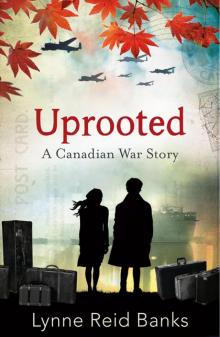 Uprooted - a Canadian War Story
Uprooted - a Canadian War Story The Backward Shadow
The Backward Shadow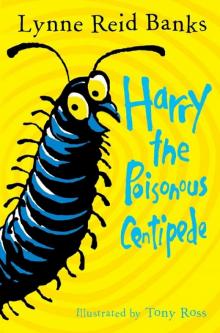 Harry the Poisonous Centipede: A Story to Make You Squirm
Harry the Poisonous Centipede: A Story to Make You Squirm The Secret of the Indian (The Indian in the Cupboard)
The Secret of the Indian (The Indian in the Cupboard) The L-Shaped Room
The L-Shaped Room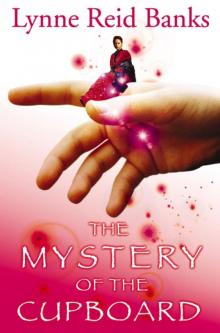 The Mystery of the Cupboard
The Mystery of the Cupboard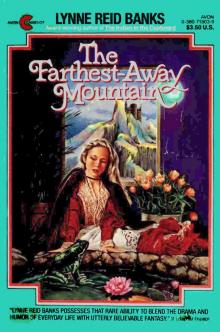 The Farthest-Away Mountain
The Farthest-Away Mountain Harry the Poisonous Centipede Goes to Sea
Harry the Poisonous Centipede Goes to Sea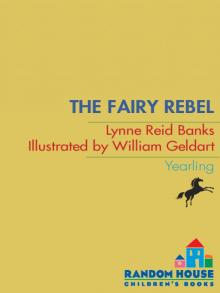 The Fairy Rebel
The Fairy Rebel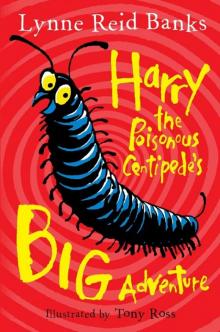 Harry the Poisonous Centipede's Big Adventure: Another Story to Make You Squirm
Harry the Poisonous Centipede's Big Adventure: Another Story to Make You Squirm The Indian in the Cupboard
The Indian in the Cupboard The Return of the Indian
The Return of the Indian I, Houdini
I, Houdini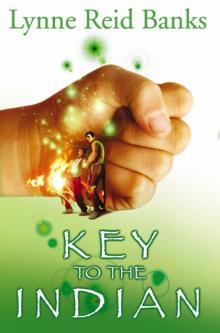 The Key to the Indian
The Key to the Indian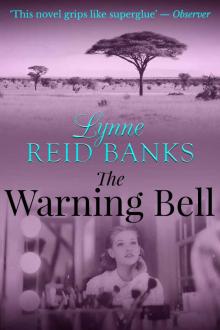 The Warning Bell
The Warning Bell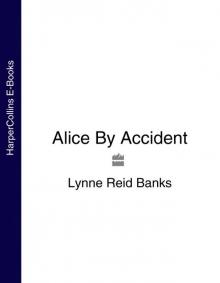 Alice by Accident
Alice by Accident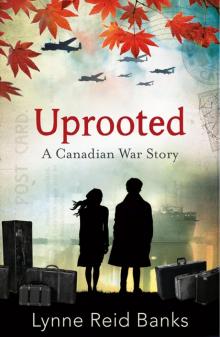 Uprooted
Uprooted Writing On the Wall
Writing On the Wall The Adventures of King Midas (Red Storybook)
The Adventures of King Midas (Red Storybook)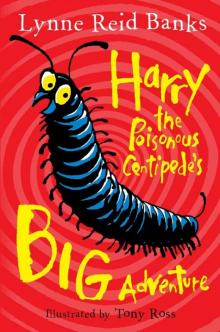 Harry the Poisonous Centipede's Big Adventure
Harry the Poisonous Centipede's Big Adventure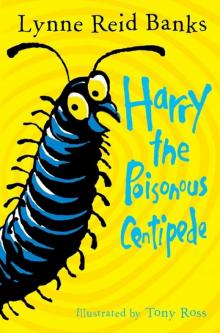 Harry the Poisonous Centipede
Harry the Poisonous Centipede The Dungeon
The Dungeon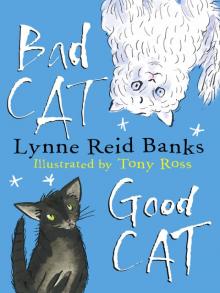 Bad Cat, Good Cat
Bad Cat, Good Cat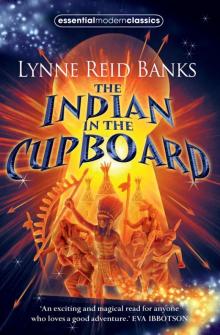 The Indian in the Cupboard (Essential Modern Classics, Book 1)
The Indian in the Cupboard (Essential Modern Classics, Book 1) Tiger, Tiger
Tiger, Tiger